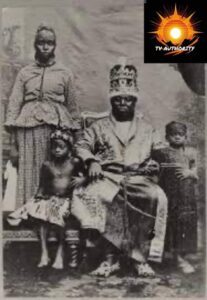The Efik people are often regarded as the most powerful and influential tribe in Cross River State, Nigeria. They played a significant role in shaping the political, cultural, and economic history of the region, especially during the pre-colonial and colonial periods.
1. Historical Influence
The Efik people trace their origins to the Ibom Kingdom, which is present-day Arochukwu in Abia State. Over time, they migrated to the coastal areas of Cross River State and established key settlements in places like Calabar, Creek Town, and Duke Town. Their proximity to the coast allowed them to become prominent middlemen in trade between European merchants and the inland tribes, including the Igbo, Ibibio, and others.
2. Control of Trade
The Efik people gained power and wealth largely due to their involvement in trade, particularly during the era of the transatlantic slave trade. Calabar became a major trading port, and the Efik served as intermediaries in the lucrative slave trade, supplying European ships with captives from the hinterland. Later, they transitioned to palm oil trade, becoming one of the leading exporters of palm oil and kernels, which further boosted their influence in the region.
3. Cultural Influence
The Efik are also known for their rich cultural heritage. Their language, Efik, is widely spoken, and their customs have significantly influenced the broader Cross River and Akwa Ibom regions. The Efik are renowned for their elaborate ceremonies, including the Ekpe society, a secretive male organization that wielded considerable political power. The Ekpe society helped regulate trade, resolve disputes, and even had its own system of writing called Nsibidi, which was used for communication and record-keeping.
The Efik monarchy is one of the oldest traditional institutions in Nigeria, with the Obong of Calabar serving as a highly respected figure. The monarch’s role in guiding both cultural and political matters has contributed to the tribe’s longevity and enduring influence.
4. Western Education and Christianity
The Efik were among the first tribes in Nigeria to embrace Western education and Christianity. Scottish missionaries arrived in Calabar in the mid-19th century, and with their arrival came schools, churches, and hospitals. The Efik people were quick to adopt these institutions, which allowed them to become one of the most educated and literate groups in the region. As a result, they played a leading role in the spread of Christianity and Western values throughout southern Nigeria.
5. Political Influence
In modern times, the Efik continue to be politically relevant. Cross River State has produced notable political figures of Efik origin who have had a significant impact on Nigerian politics. Calabar, the historic seat of the Efik Kingdom, remains a cultural and political hub in southern Nigeria.
Conclusion
The Efik tribe’s historical, economic, and cultural contributions have cemented its status as one of the most powerful and influential tribes in Cross River State. Their legacy of trade, political organization, and early adoption of Western education continues to resonate, making them a central part of the state’s identity.
For more historical insights, follow me on:
• Instagram: @tvauthorityng
• Twitter: @tvauthorityng
• Facebook: TV Authority
- #TVAuthority #Myafrik #Efik #CrossRiverState #WestAfricanHistory




